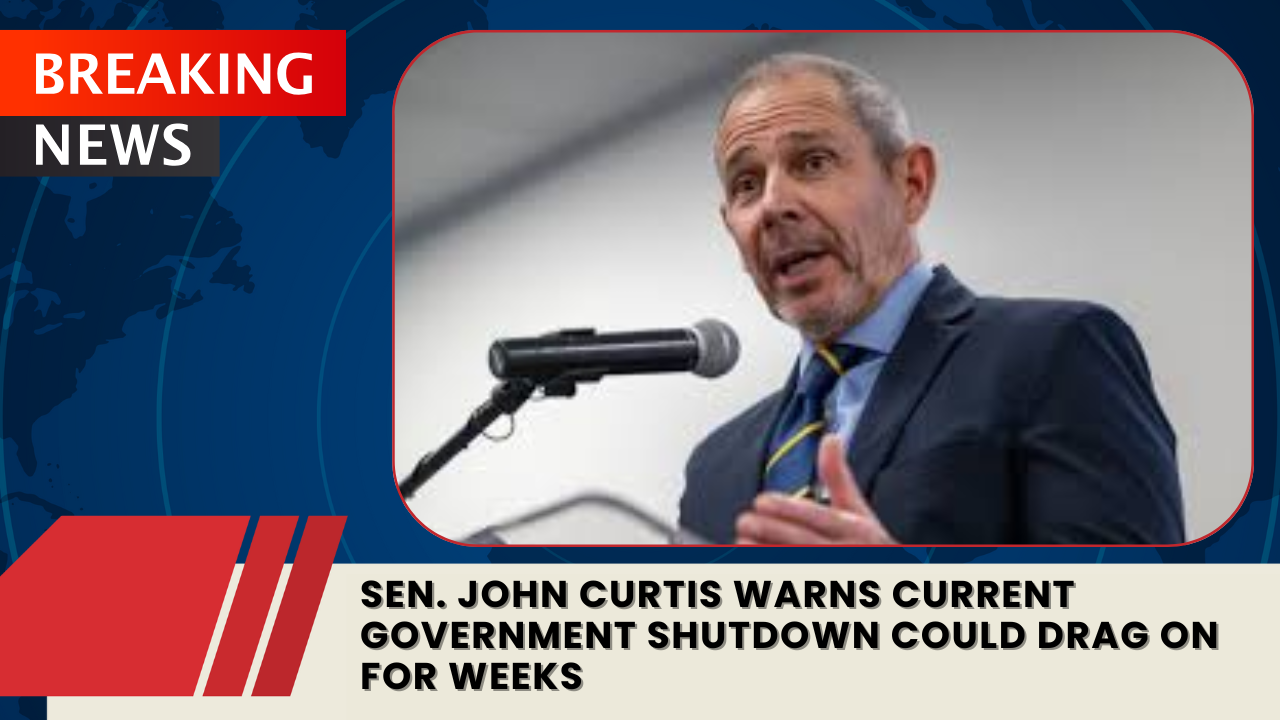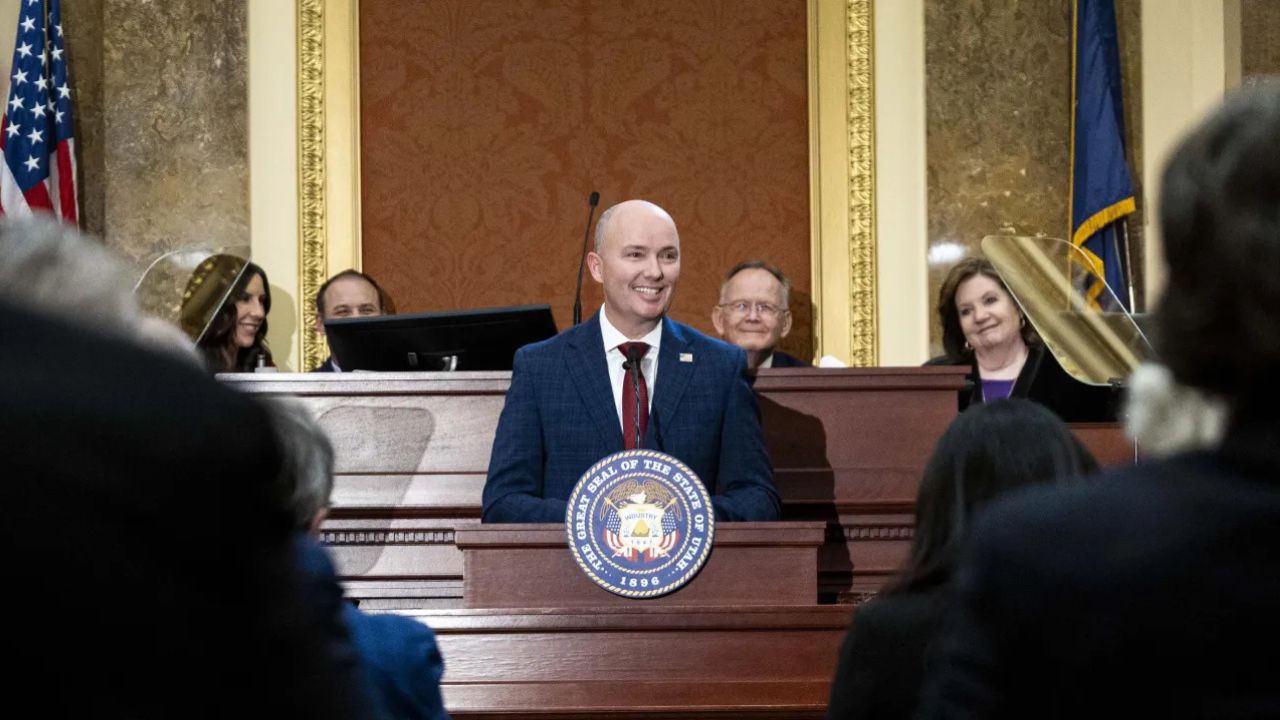Utah Senator John Curtis says the ongoing federal government shutdown may last “a long time,” citing unusually low public pressure and minimal visible disruption compared to past shutdowns.
“Currently in Utah, the pressure points are mostly around the parks,” Curtis told reporters at the Conservative Climate Summit at the University of Utah on Friday. “Those are still functioning — not at 100%, but still functioning. We don’t have people calling in and saying, ‘I can’t get my passport,’ and those are usually the things that build up in a shutdown.”
Curtis described the situation as “a really interesting shutdown,” noting that nearly three weeks in, both parties appear less motivated to resolve the stalemate. “I’m not feeling what we’ve usually felt in these,” he said. “I don’t think either Republicans or Democrats are feeling it quite the way that people thought we would.”
A Stalemate in Congress
The shutdown — now in its 17th day — stems from a standoff between Senate Democrats and Republican leadership, who control the White House, Senate, and House of Representatives. Democrats are refusing to back a short-term funding bill unless the GOP reverses cuts to health care programs and extends Affordable Care Act (ACA) premium tax credits.
Curtis said he’s open to discussing an ACA credit extension but called it “inappropriate” to link that issue to the shutdown. “We’re very sympathetic to increasing premiums and would love to have a discussion about it,” he said, “but this isn’t the right way to do it.”
He also suggested that Congress might bypass a short-term continuing resolution (CR) entirely, instead focusing on passing full appropriations bills. “It’s possible we just go through and approve appropriations — that’s how we get out and avoid a CR,” Curtis said.
Local and National Impacts
The effects of the shutdown are gradually spreading:
- Thousands of federal employees across the country are furloughed or working without pay.
- Airport delays are increasing as air traffic controllers call out sick.
- National parks like Zion National Park are losing between $35,000 and $50,000 daily in entrance fees.
- About 34,000 Utahns — including many civilian workers at Hill Air Force Base — are affected by the shutdown, with hundreds working unpaid.
Rep. Blake Moore (R-Utah) voiced concern for those workers, calling their situation “deeply unfair.” “Air traffic controllers are already overworked,” Moore said. “We need to find a way to address pay for these employees even during the closure.”
“Not Feeling the Pressure”
Curtis said the muted public response may delay a resolution. “It could” last a long time, he admitted, adding that “each president reacts differently” to such crises.
The senator made his remarks during a session that also featured Energy Secretary Chris Wright, who joined virtually. “I’ve spent lots of time in Utah — climbing, hiking, skiing,” Wright said as he wrapped up. “It’s a tremendous state. Now go get the government open!”



